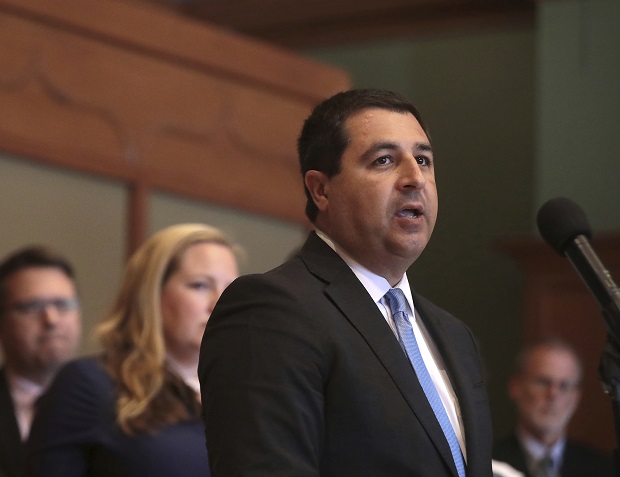Law firm entitled to fees
By: dmc-admin//May 31, 2010//
Looking to recover unpaid fees from a former client?
A May 25 opinion from the Wisconsin Court of Appeals sets forth what is required to make a prima facie case for breach of contract in a motion for summary judgment.
Affirming an award of more than $27,000 in attorney fees to the law firm of Simandl & Murray, S.C., the court found, “The affidavit of Attorney Simandl contains the following information: he is a shareholder; his firm was hired by Mainstreet and the letter of engagement is referenced in the affidavit; his firm sent regular monthly bills to Mainstreet which itemized the work and the resulting legal fees and costs; and Mainstreet failed to pay.”
In March 2008, the firm sued Mainstreet Homes, LLC, for legal services performed on its behalf. A copy of the original letter of engagement and itemized bills were attached to the complaint.
In its answer, Mainstreet claimed improper service of process, lack of personal jurisdiction, and breach of contract by the firm for engaging in a conflict of interest.
The discovery deadline passed without Mainstreet naming any expert witness, and the firm moved for summary judgment. The circuit court granted the motion, and the Court of Appeals affirmed in an opinion by Judge Patricia S. Curley.
Mainstreet argued that Simandl & Murray “utterly and completely failed to meet its burden at summary judgment of establishing a prima facie case,” but the court disagreed.
The court first rejected Mainstreet’s argument that the motion was deficient for not including the letter of engagement or billing statements with the motion for summary judgment, despite old case law requiring it. The court noted that, since those cases were decided, Rule 802.08(3) has been amended to exempt documents that are already in the record.
The court next held that the documents the firm included in its complaint and the averments listed above in the motion for summary judgment were sufficient to make a prima facie case for breach of contract.
Mainstreet argued that more was required, specifically, “1. A reasonably exact description and record citation for the billing statements; 2. An affirmation by the affiant that the listed legal tasks were in fact performed; 3. An affirmation by the affiant that the time claimed was accurate and the rate charged was reasonable; and 4. That the work performed by Simandl & Murray was necessary and reasonable.”
But the court found that the firm’s submissions were sufficient, and that Mainstreet had no evidence to counter them.
The attorney for Mainstreet averred in his affidavit in opposition to summary judgment that the firm’s legal work was unnecessary and the fees unreasonable. However, the court held that such an averment must be made by an expert witness.
Because Mainstreet did not timely file a list of witnesses, the court found that Mainstreet had no evidence to contest the reasonableness or the necessity of the claimed fees, and thus, summary judgment was properly granted to the firm.
The court concluded, “Had Mainstreet raised the issue of unreasonable fees in its answer, or had Mainstreet’s attorney filed a timely witness list naming an expert witness on attorney fees, conducted discovery or deposed a member of Simandl & Murray addressing the unreasonableness of the fees or the allegedly unnecessary work, this case probably would not have been appropriate for summary judgment. However, one of these events occurred and the trial court properly grated Simandl & Murray’s motion for summary judgment.”
David Ziemer can be reached at [email protected]
Legal News
- EVERS: Republican lawmakers No-Show at special meeting to release statewide PFAS funding, stabilize healthcare access
- Wisconsin ICAC Task Force conference on Missing and Exploited Children highlights increase in sextortion cases
- More than 300 Wisconsin officers back in law enforcement after being fired or forced out
- Former Trump staffer who said to ‘fan the flame’ after 2020 loss hired to lead Wisconsin GOP
- Gov. Evers appoints David Casey to Serve as DOR Secretary
- FBI launches criminal investigation into Key Bridge collapse
- Man charged in slaying after woman’s leg found at Milwaukee-area park
- Minnesota man guilty in fatal stabbing of teen on Wisconsin river, jury finds
- Wisconsin teen sentenced in bonfire explosion that burned at least 17
- Wisconsin man who broke into home, ate victim’s chicken, slept in victim’s bed, receives prison and jail sentences
- Judge refuses to dismiss Hunter Biden’s gun case
- House passes reauthorization of key US surveillance program after days of upheaval over changes
WLJ People
- Power 30 Personal Injury Attorneys – Russell Nicolet
- Power 30 Personal Injury Attorneys – Benjamin Nicolet
- Power 30 Personal Injury Attorneys – Dustin T. Woehl
- Power 30 Personal Injury Attorneys – Katherine Metzger
- Power 30 Personal Injury Attorneys – Joseph Ryan
- Power 30 Personal Injury Attorneys – James M. Ryan
- Power 30 Personal Injury Attorneys – Dana Wachs
- Power 30 Personal Injury Attorneys – Mark L. Thomsen
- Power 30 Personal Injury Attorneys – Matthew Lein
- Power 30 Personal Injury Attorneys – Jeffrey A. Pitman
- Power 30 Personal Injury Attorneys – William Pemberton
- Power 30 Personal Injury Attorneys – Howard S. Sicula











